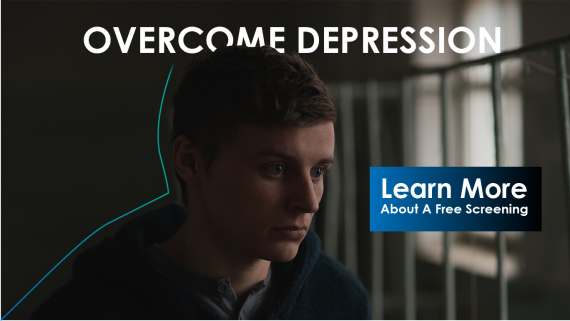Overview
Depression is never easy to handle especially if you have experienced it for a long time. You might be motivated one day, and then suddenly feel an overwhelming sadness the next day. Taking a shower, eating, or even getting out of bed seems like a chore. You may no longer have the same amount of interest in activities you used to, and often you may just want to be left alone. Maybe you feel that the only person who understands you is yourself. That’s understandable. You are not to blame for feeling depressed.
Depression is the most common mental disorder in the country. Millions of Americans suffer from some form of depression every year. That being said, you are not alone. There are many resources to help including free screenings, therapy, support groups, exercising, and many more. However, admitting that you want help is the first step to living a happier and healthier life.
Statistics
Causes
There is truly no one cause for depression. It depends on a unique combination of an individuals genetic makeup and environmental conditions. The following are a few factors that may contribute to depression:
- The brain’s physical structure or chemistry
- History of depression in the family
- History of other disorders (anxiety, post-traumatic stress disorder)
- Stressful, traumatic events (abuse, constant rejection, death of a loved one, financial issues)
- Hormone changes (menstrual cycles, pregnancy)
- Certain medications (sleeping aids, blood pressure medication)
Signs
Most common signs and symptoms of depression:
- Loss of interest in activities that were once enjoyable
- Fatigue and lack of energy
- Appetite or weight changes
- Physical symptoms such as headaches, stomachaches, or back pain
- Recurrent thoughts of suicide
- Difficulty sleeping, sleep disturbances, and/or having a hard time getting out of bed
- Difficulty thinking clearly, making decisions, or concentrating
- Feeling of isolation or wanting to be isolated for long periods of time
Treatment Options
- Sign up for clinical trial and/or free screenings for depression
- Therapy – speaking with a psychologist
- Medication
- Exercise, Yoga, Meditation
- Keeping a journal (writing down your thoughts instead of bottling them up)
- Write short and long-term goals for yourself
- Calling a depression hotline if you don’t feel comfortable talking to a therapist
- Seeking support groups, or talking to someone you feel close to
Clinical Research
Participating in a clinical trial is available as a treatment option. The benefits of volunteering for a study include, but are not limited to the following:
- Helping future and current generations
- You or your loved one may have access to new treatments, not available to the public
- Data collected from the results is used to determine whether a new medication or therapy is safe and effective.
ActivMed Practices & Research along with other clinical practices is determined to find a cure to depression by conducting clinical trials. If you or someone you know is diagnosed with depression or is not sure whether they have depression learn more about our study options might be the right decision. To learn about these study opportunities and see if you qualify, click HERE.
Looking Forward
Recovery is a slow process, but with time treatment options can be very helpful. At the end of the day, it is not a race, and you shouldn’t put too much pressure on yourself to get better right away. Depression affects people of all ages, races, ethnicity, and backgrounds. Depression can be deceiving in the sense that the people who appear to be “fine” are actually the people who are struggling with it the most. It is also good to help others who suffer from depression as well. Together we can be healthier.
References (Chart taken from)




